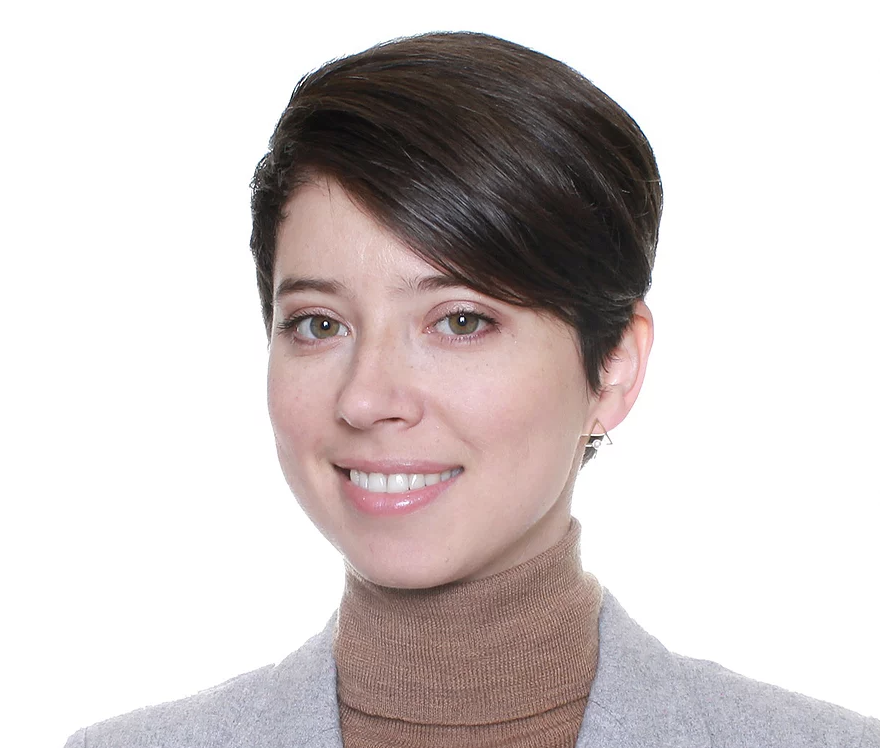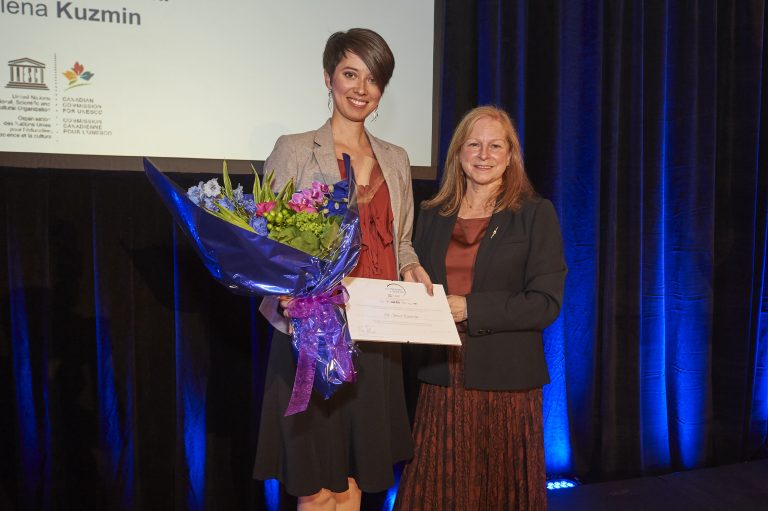
A postdoctoral fellow in the lab of Prof. Morag Park at the Goodman Cancer Research Centre (GCRC), Elena Kuzmin’s work has been garnering a fair amount of recognition recently. After having received a Banting Postdoctoral Fellowship from the Canadian Institutes of Health Research back in May, Kuzmin was selected to be a Fellow of the Global Future Council on Biotechnology, World Economic Forum.
Most recently, on November 25, she was honoured with the Women in Science Research Excellence Fellowship, L’Oréal Canada with the support of the Canadian Commission for UNESCO.
“It is an honour to be the recipient of these fellowships in recognition of my work,” says Kuzmin. “This funding enables me to build networks by supporting my attendance to national and international conferences, where I can present my research and discuss the findings with peers and leaders in the field. Most importantly, it has enabled me to receive an unmatched training opportunity at McGill, to make a significant contribution to our understanding of cancer biology and hopefully to establish a well-rounded research program of my own studying complex genetic interaction networks in yeast and human cells.”
“A role model for young women in science”
The L’Oréal Canada fellowships are meant to enhance the role of women in devising scientific solutions to problems confronting humankind in the 21st century. The purpose of this program is to support major research projects undertaken by Canadian scientists at the post-doctoral level in Canada.
The Global Future Council on Biotechnology is the world’s foremost knowledge network dedicated to promoting innovative thinking on the future and aims to launch initiatives capable of accelerating new medical biotechnological discoveries, diagnostics and therapeutics. The council consists of 20-25 members, including industry leaders, government officials and academic researchers, such as postdoctoral fellows and faculty members from around the world.
“Elena is at the forefront of applying complex genetic approaches to understand breast cancer interaction and progression,” notes Park, who is also the Director of the GCRC. “She is a role model for young women in science.”
Helping better understand the deadliest type of breast cancer
Kuzmin completed her Honours BSc with High Distinction in Human Biology and Zoology and her MSc in the Department of Laboratory Medicine and Pathobiology at the SickKids Research Institute, University of Toronto. She then went on to do her PhD in the Department of Molecular Genetics at the University of Toronto with Profs. Charles Boone and Brenda Andrews, where she studied complex genetic interaction networks in the budding yeast.
In her current work, Kuzmin is applying the principles of complex genetic interactions to address a current challenge in human disease – the onset and progression of triple negative breast cancer. This subset of breast cancer has no targeted therapies, since it lacks 3 common biomarkers such as estrogen and progesterone receptors and Her2, and has the worst survival rates. The aim of her project is to use single-cell genomic and transcriptomic sequencing technologies combined with genetic screens to gain insight into the evolution of large copy number variants, which are characteristic of this cancer type. Ultimately, this research is expected to reveal genetic events that modulate triple negative breast cancer, enhancing our understanding of the disease and offering possible avenues for personalized interventions to affected individuals.

